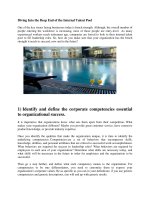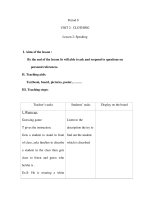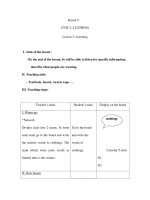End of the Tether
Bạn đang xem bản rút gọn của tài liệu. Xem và tải ngay bản đầy đủ của tài liệu tại đây (79.98 KB, 11 trang )
End of the Tether
by
Joseph Conrad
Web-Books.Com
End of the Tether
Chapter 1..........................................................................................................................................3
Chapter 2..........................................................................................................................................6
Chapter 3........................................................................................................................................12
Chapter 4........................................................................................................................................16
Chapter 5........................................................................................................................................21
Chapter 6........................................................................................................................................30
Chapter 7........................................................................................................................................34
Chapter 8........................................................................................................................................38
Chapter 9........................................................................................................................................44
Chapter 10......................................................................................................................................51
Chapter 11......................................................................................................................................58
Chapter 12......................................................................................................................................68
Chapter 13......................................................................................................................................78
Chapter 14......................................................................................................................................91
Chapter 1
For a long time after the course of the steamer Sofala had been altered for the land, the
low swampy coast had retained its appearance of a mere smudge of darkness beyond a
belt of glitter. The sunrays seemed to fall violently upon the calm sea--seemed to
shatter themselves upon an adamantine surface into sparkling dust, into a dazzling
vapor of light that blinded the eye and wearied the brain with its unsteady brightness.
Captain Whalley did not look at it. When his Serang, approaching the roomy cane arm-
chair which he filled capably, had informed him in a low voice that the course was to be
altered, he had risen at once and had remained on his feet, face forward, while the head
of his ship swung through a quarter of a circle. He had not uttered a single word, not
even the word to steady the helm. It was the Serang, an elderly, alert, little Malay, with a
very dark skin, who murmured the order to the helmsman. And then slowly Captain
Whalley sat down again in the arm-chair on the bridge and fixed his eyes on the deck
between his feet.
He could not hope to see anything new upon this lane of the sea. He had been on these
coasts for the last three years. From Low Cape to Malantan the distance was fifty miles,
six hours' steaming for the old ship with the tide, or seven against. Then you steered
straight for the land, and by-and-by three palms would appear on the sky, tall and slim,
and with their disheveled heads in a bunch, as if in confidential criticism of the dark
mangroves. The Sofala would be headed towards the somber strip of the coast, which
at a given moment, as the ship closed with it obliquely, would show several clean
shining fractures--the brimful estuary of a river. Then on through a brown liquid, three
parts water and one part black earth, on and on between the low shores, three parts
black earth and one part brackish water, the Sofala would plow her way up-stream, as
she had done once every month for these seven years or more, long before he was
aware of her existence, long before he had ever thought of having anything to do with
her and her invariable voyages. The old ship ought to have known the road better than
her men, who had not been kept so long at it without a change; better than the faithful
Serang, whom he had brought over from his last ship to keep the captain's watch; better
than he himself, who had been her captain for the last three years only.
She could always be depended upon to make her courses. Her compasses were never
out. She was no trouble at all to take about, as if her great age had given her
knowledge, wisdom, and steadiness. She made her landfalls to a degree of the bearing,
and almost to a minute of her allowed time. At any moment, as he sat on the bridge
without looking up, or lay sleepless in his bed, simply by reckoning the days and the
hours he could tell where he was--the precise spot of the beat. He knew it well too, this
monotonous huckster's round, up and down the Straits; he knew its order and its sights
and its people. Malacca to begin with, in at daylight and out at dusk, to cross over with a
rigid phosphorescent wake this highway of the Far East. Darkness and gleams on the
water, clear stars on a black sky, perhaps the lights of a home steamer keeping her
unswerving course in the middle, or maybe the elusive shadow of a native craft with her
mat sails flitting by silently--and the low land on the other side in sight at daylight. At
noon the three palms of the next place of call, up a sluggish river. The only white man
residing there was a retired young sailor, with whom he had become friendly in the
course of many voyages. Sixty miles farther on there was another place of call, a deep
bay with only a couple of houses on the beach.
And so on, in and out, picking up coastwise cargo here and there, and finishing with a
hundred miles' steady steaming through the maze of an archipelago of small islands up
to a large native town at the end of the beat. There was a three days' rest for the old
ship before he started her again in inverse order, seeing the same shores from another
bearing, hearing the same voices in the same places, back again to the Sofala's port of
registry on the great highway to the East, where he would take up a berth nearly
opposite the big stone pile of the harbor office till it was time to start again on the old
round of 1600 miles and thirty days. Not a very enterprising life, this, for Captain
Whalley, Henry Whalley, otherwise Dare-devil Harry--Whalley of the Condor, a famous
clipper in her day. No. Not a very enterprising life for a man who had served famous
firms, who had sailed famous ships (more than one or two of them his own); who had
made famous passages, had been the pioneer of new routes and new trades; who had
steered across the unsurveyed tracts of the South Seas, and had seen the sun rise on
uncharted islands. Fifty years at sea, and forty out in the East ("a pretty thorough
apprenticeship," he used to remark smilingly), had made him honorably known to a
generation of shipowners and merchants in all the ports from Bombay clear over to
where the East merges into the West upon the coast of the two Americas. His fame
remained writ, not very large but plain enough, on the Admiralty charts. Was there not
somewhere between Australia and China a Whalley Island and a Condor Reef? On that
dangerous coral formation the celebrated clipper had hung stranded for three days, her
captain and crew throwing her cargo overboard with one hand and with the other, as it
were, keeping off her a flotilla of savage war-canoes. At that time neither the island nor
the reef had any official existence. Later the officers of her Majesty's steam vessel
Fusilier, dispatched to make a survey of the route, recognized in the adoption of these
two names the enterprise of the man and the solidity of the ship. Besides, as anyone
who cares may see, the "General Directory," vol. ii. p. 410, begins the description of the
"Malotu or Whalley Passage" with the words: "This advantageous route, first discovered
in 1850 by Captain Whalley in the ship Condor," &c., and ends by recommending it
warmly to sailing vessels leaving the China ports for the south in the months from
December to April inclusive.
This was the clearest gain he had out of life. Nothing could rob him of this kind of fame.
The piercing of the Isthmus of Suez, like the breaking of a dam, had let in upon the East
a flood of new ships, new men, new methods of trade. It had changed the face of the
Eastern seas and the very spirit of their life; so that his early experiences meant nothing
whatever to the new generation of seamen.
In those bygone days he had handled many thousands of pounds of his employers'
money and of his own; he had attended faithfully, as by law a shipmaster is expected to
do, to the conflicting interests of owners, charterers, and underwriters. He had never
lost a ship or consented to a shady transaction; and he had lasted well, outlasting in the
end the conditions that had gone to the making of his name. He had buried his wife (in
the Gulf of Petchili), had married off his daughter to the man of her unlucky choice, and
had lost more than an ample competence in the crash of the notorious Travancore and
Deccan Banking Corporation, whose down-fall had shaken the East like an earthquake.
And he was sixty-five years old.









